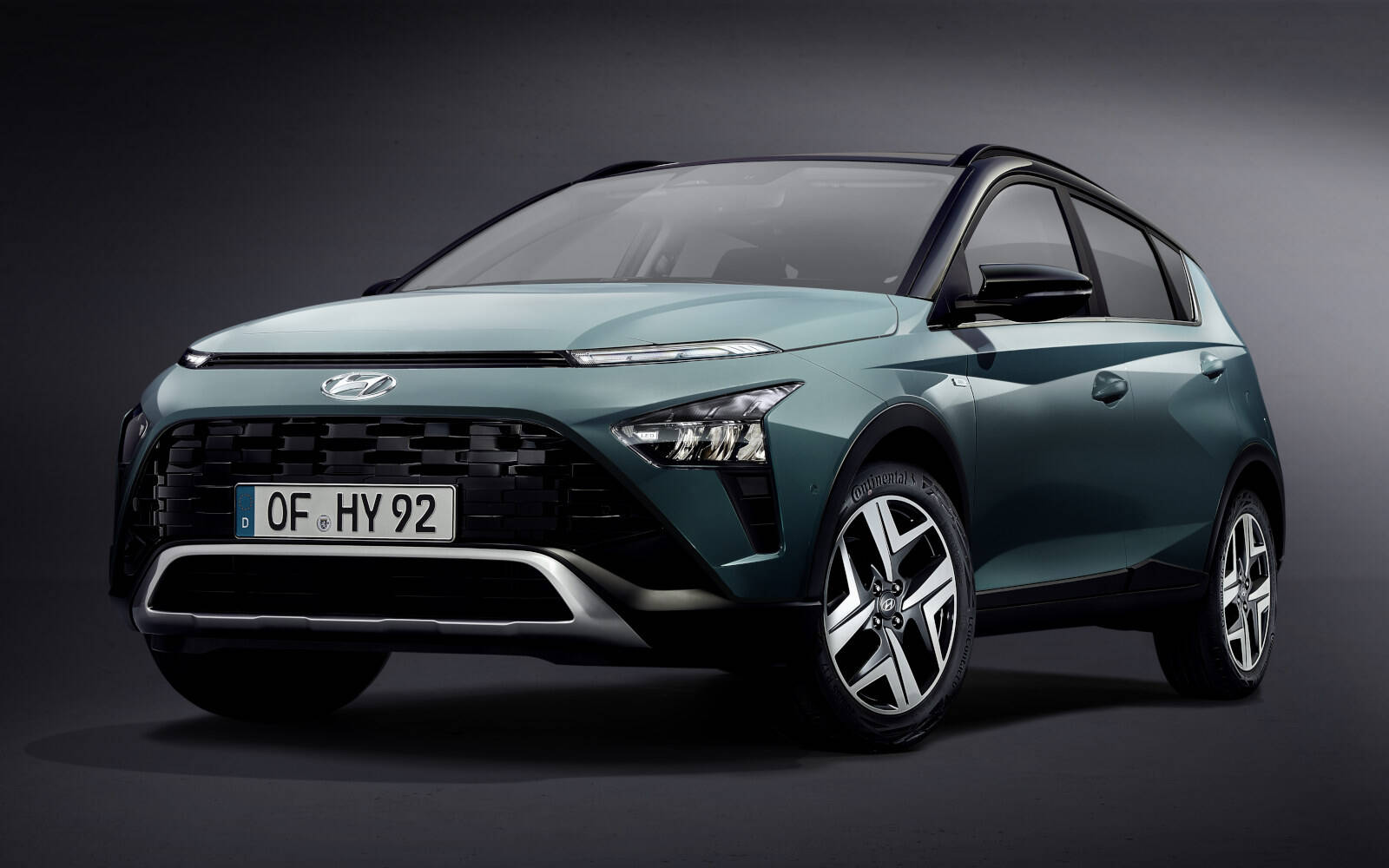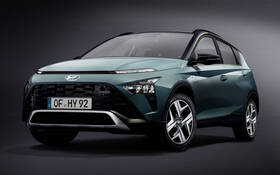Hyundai Bayon Debuts in Europe While We Stick With the Venue
Hyundai today unveiled a brand new small SUV specifically designed for Europe. It’s called Bayon (named after Bayonne, the capital of the Basque Country in the south-west of France) and slots below the Kona.
It’s a much different-looking product than the Venue that hit the market about a year ago in North America as well as India and Australia.
- Also: 2020 Hyundai Venue: Formerly Known as Accent
- Also: 2020 Nissan Kicks vs. 2020 Hyundai Venue: The Numbers
Embodying the Korean automaker’s “Sensuous Sportiness” design language, the Hyundai Bayon shares some similarities with the redesigned 2022 Tucson that will go on sale this spring. Just look at the elaborately sculpted body sides. It has its own unique personality, though, with distinctive front and rear fascias—especially the arrow-shaped taillights connected by a thin horizontal line.

The silhouette is way less boxy than the Venue’s, but just like the latter the Bayon offers a choice of stylish wheels and two-tone exterior combinations. In terms of size, it trumps the Venue in overall length (+140 mm), wheelbase (+60 mm) and width (+5 mm), but height is reduced (-75 mm).
Inside, it’s nothing like the uninspiring, cheap-looking cockpit of the crossover sold here. The dashboard and main controls are more attractive, while the 8- or 10.25-inch centre display better fits into the layout. A 10.25-inch digital instrument cluster is also available. Ambient lighting adds colour to the cabin.

Of course, the Hyundai Bayon comes with the latest BlueLink connectivity services and many of the brand’s SmartSense advanced safety and driver assistance features. Compared with the Venue, it provides 12-22 mm of extra legroom depending on where you sit. The trunk is smaller (411 L vs. 528 L), but if you fold the rear seats down it’s the opposite (1,205 L vs. 902 L).

As for the powertrain, the Hyundai Bayon can be motivated by either a turbocharged 1.0L engine (99 hp or 118 hp) with an available 48V mild hybrid system or a 1.2L engine (83 hp). Still think the Venue is weak at 121 hp?
The so-called “intelligent” manual transmission (iMT) disengages the engine from the transmission when the driver releases the accelerator. This allows the vehicle to start coasting, reducing emissions and saving fuel. The alternative is a seven-speed dual-clutch transmission. There is no CVT or AWD option.
So, which small SUV do you prefer, Bayon or Venue?












